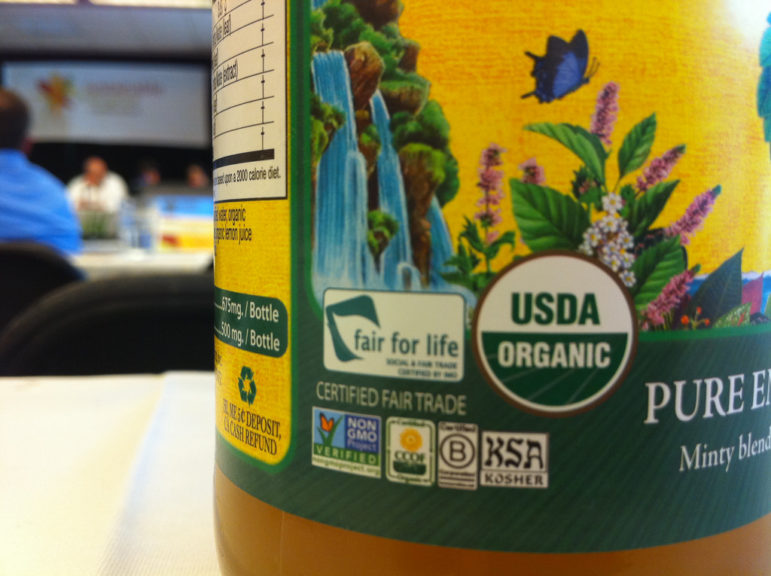
July 8, 2016; NPR, “The Salt”
Earlier this month, the Senate passed a bill requiring food companies to indicate on food labels whether or not their products contain genetically modified organisms, or GMOs. The bill (S. 764), which passed with a 63 to 30 majority in the Senate and a 306 to 117 majority in the House a week later, blocks state GMO labeling laws. The White House indicated that the president is likely to approve the legislation, which may have influenced the bipartisan nature of the votes in both houses of Congress.
This was considered a big win for many food companies, which fear that indicating any use of a GMO ingredient will cause consumers to avoid the item altogether, incorrectly believing the foods are inferior or even unsafe to eat. Food association groups are pleased because S. 764 allows food companies options on how to label for GMOs, including one that does not require an outright indication of GMOs in the ingredient list. Those food association groups believe that this option will relieve some of the stigma surrounding GMOs that may be present with more blatant labeling.
According to Science Magazine, farm groups and biotech firms alike are in favor of this bill because it allows for a single national labeling standard as opposed to the labeling laws that vary from state to state. The Organic Trade Association is happy with the bill as it contains an advantage in cost savings for organic food manufacturers. In the past, those organic food manufacturers had to pay significant fees in order to have their products verified as GMO-free. The bill also means that products derived from an animal that may have been given feed that was possibly genetically modified are not considered GMO products.
Through this legislation, food manufacturers will have three different labeling options from which to choose:
A label using the USDA symbol that states that the product contains GMOs.
Sign up for our free newsletters
Subscribe to NPQ's newsletters to have our top stories delivered directly to your inbox.
By signing up, you agree to our privacy policy and terms of use, and to receive messages from NPQ and our partners.
A label that is text only.
A label that provides a QR code consumers can scan with a smartphone to then be shown the list of ingredients, including those that are GMOs.
Small business food manufacturers would also have the option to add a phone number or website to the label for consumers to gather more information.
However, anti-GMO advocates are not happy. Vermont senators in particular are opposed to this bill because it goes against a state law, Act 120, which went into effect on July 1st. As covered in Nonprofit Quarterly’s nonprofit newswire, that law requires food labels for products that contain GMOs to clearly state as such on the food packaging. Other issues with the federal legislation are that it does not include any penalties for food companies that are noncompliant, and that it will not even go into effect for another two years. The USDA has two years from the date that the bill is signed into law to determine which products should be labeled. In addition, some ingredients, such as oils and sweeteners, are exempt from GMO labeling identification.
Another argument posed by anti-GMO advocates is that this bill does not do enough for consumers, who they feel not only have the right to know what’s in the food they are purchasing, but also to have easy access to that information. Not all Americans have the smartphones that would allow them to determine at the point of purchase whether or not a food item contains GMOs.
Activist groups opposed to the bill delivered petitions containing over 250,000 signatures to the White House at the end of last week. Those groups refer to S. 764 as the DARK Act—as in “Deny Americans the Right to Know” about what’s in the food they are purchasing and consuming. Many are calling on President Obama to remember his statement on the campaign trail when he said that Americans have the right to know whether or not the food they eat contains GMOs. The bill is currently awaiting the president’s signature.—Kelley Malcolm











